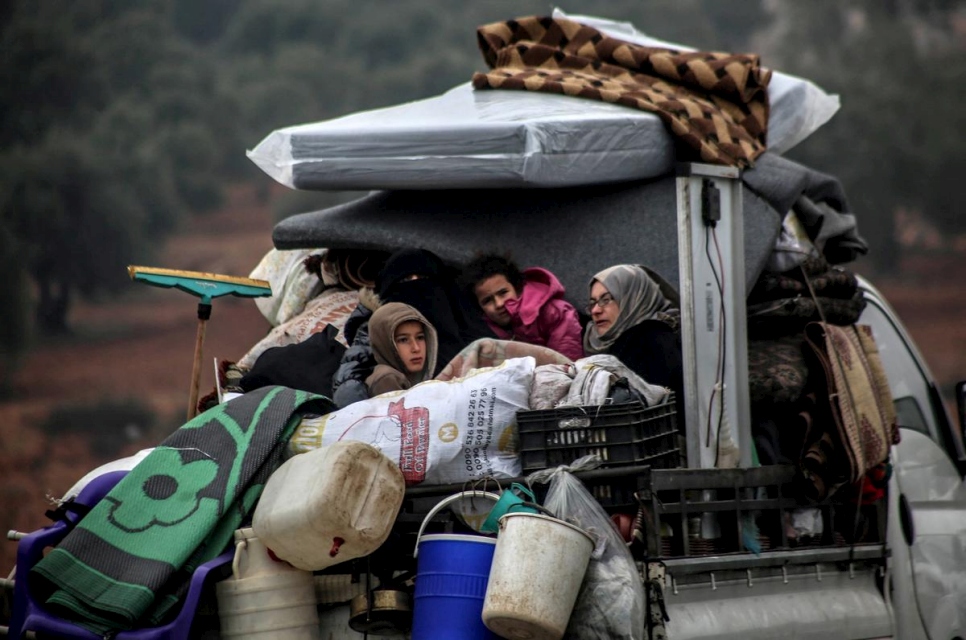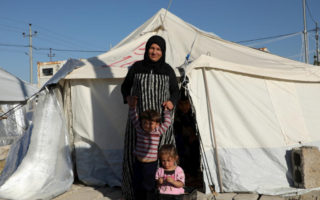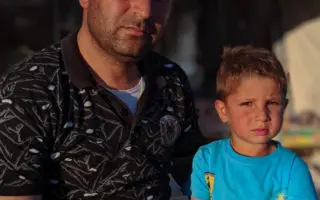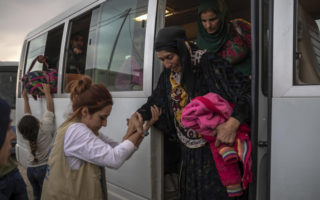
A Syrian family flees ongoing attacks around Idlib, December 2019. © Ritzau Scanpix
This is a summary of what was said by UNHCR spokesperson Andrej Mahecic – to whom quoted text may be attributed – at today’s press briefing at the Palais des Nations in Geneva.
UNHCR is deeply concerned about the safety and well-being of civilians in north-west Syria. The humanitarian crisis is becoming increasingly desperate, with massive numbers of people on the move. UNHCR, as part of the UN humanitarian response, is stepping-up to reach those in need.
Around 700,000 people have fled within or from the conflict areas in Syria’s Idlib and Aleppo Governorates since early December. A critical need is shelter, compounded by the harsh winter conditions. Many have had to flee already several times, leaving behind possessions, and with limited places for them to stay.
Existing camps and settlements of internally displaced persons are overcrowded, and shelter in existing houses is getting scarce. Many schools and mosques are filled with displaced families, and even finding a place in an unfinished building has become close to impossible.
UNHCR seeks to support people in need where-ever they are, and through all available channels. UNHCR is contributing urgently needed tents as well as other essential core relief items, including blankets together with humanitarian partners. However, this will only meet a small part of the total needs, as recent displacement has outstripped capacity. More resources and funding are urgently required.
Protection services, targeting the most vulnerable displaced persons are also scaled up, including psychosocial counselling and other emergency protection support, including to many children.
The conflict in Syria has caused the biggest displacement crisis in the world. Over 5.5 million Syrians live as refugees in the region. More than six million Syrians are displaced within the country.
For more information on this topic, please contact:
- In Amman, Rula Amin, aminr@unhcr.org, +962 790 04 58 49
- In Syria, Mysa Khalaf, khalafm@unhcr.org, +963 9933 57 860
- In Geneva, Andrej Mahecic, mahecic@unhcr.org, +41 79 642 97 09
Originally published by UNHCR on 11 February 2020





